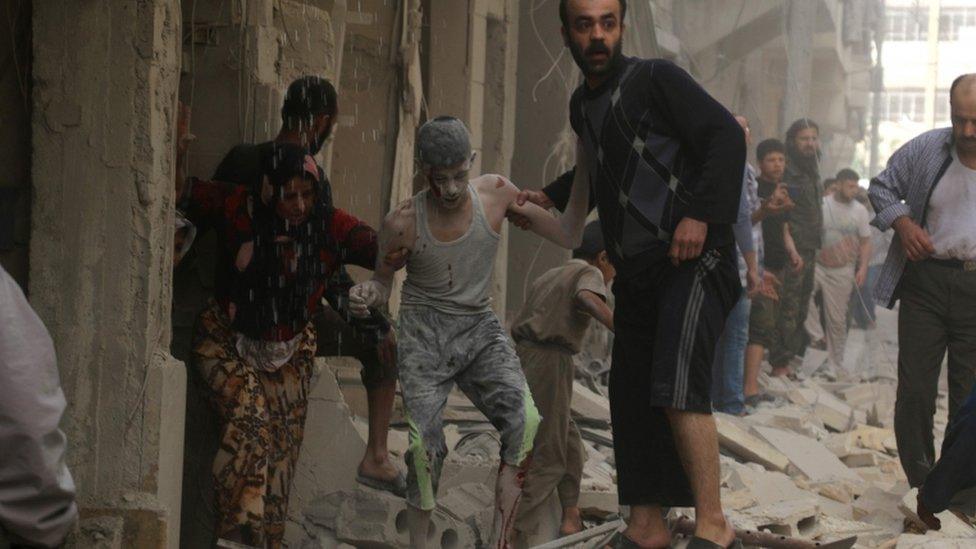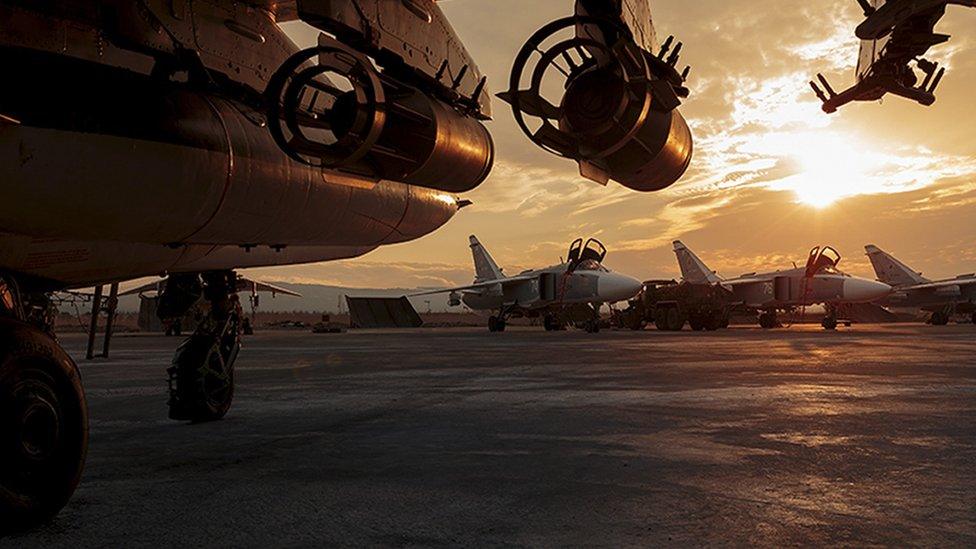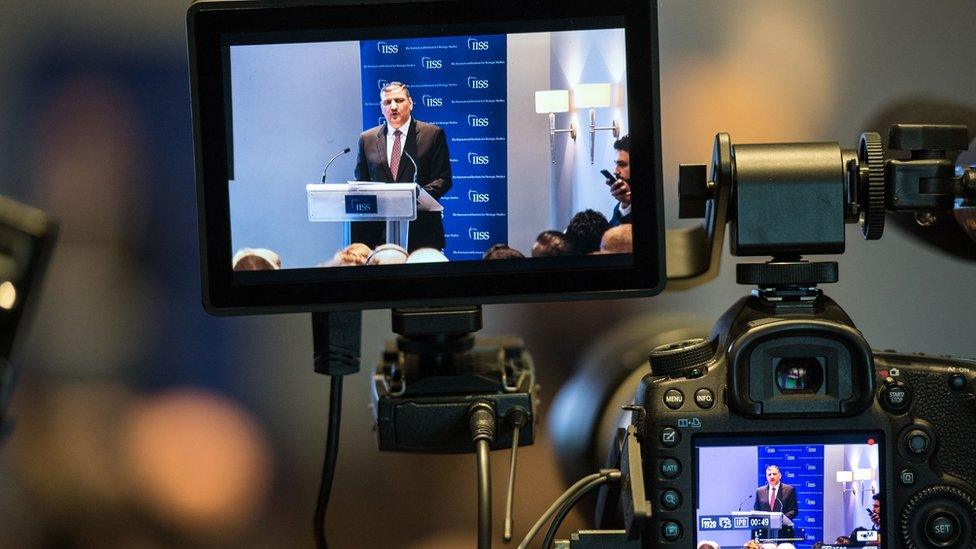Syria: The long path to peace
- Published

The fifth-floor meeting room of what its director grandly described as "the global headquarters" of the International Institute for Strategic Studies, alongside the Thames in London, may seem a strange place to launch a peace plan for Syria.
But this is where diplomats and the media assembled on Wednesday for the presentation by the so-called High Negotiation Committee of its framework for a political solution to the crisis.
Any political deal to end the bloodshed and horror is long overdue. Now in its sixth year of bitter civil war, the Syrian conflict has fragmented the country. It has sent millions on the road to internal displacement or to become refugees abroad. The true death toll is unquantifiable.
More dismal still, the fighting shows no sign of ending. Indeed, as it has gone on, external powers have been drawn in - Russia, Iran and Turkey all have troops or aircraft engaged in combat, not to mention the never-admitted role of small numbers of Western and Arab special forces, advising the rebels.
What began as a conflict between President Assad and sections of his own people has become a wider regional struggle. Syria has become the theatre for a battle between Sunni Arab states and Iran; between the West (along with its Arab and Turkish allies) against so-called Islamic State; and between Turkey and the Kurds, who Ankara sees as a threat to its own territorial integrity.

Russia has carried out raids on behalf of its ally, Syrian President Bashar al-Assad
So what then was this London gathering all about? Or to put it another way, just who exactly does the High Negotiation Committee represent?
Ask a Western diplomat this question and you will get a stock answer: "The HNC is the most representative group formed since the Syrian revolution began," I was told. "It represents a number of major political forces along with independents."
In response to my sceptical gaze there was a quick addendum: "We acknowledge that there is a large middle ground in Syria that does not [yet] support the HNC. We hope the new peace plan encourages more people to back them."
So the HNC is that elusive thing that the West has been seeking throughout this conflict - Syrian democrats and people backing a pluralistic inclusive society. And it is the related collection of militias - the Free Syrian army - that has garnered the bulk of Western practical support.
Don't get me wrong; this is not a moment for misplaced cynicism. As I listened to Dr Riad Hijab - the general co-ordinator of the HNC - present his case, it was a good one.

Dr Hijab insists there will be no marginalisation in a future Syrian state
This was a clear plan for a future inclusive society. There was a detailed programme for establishing a transitional government leading to elections and so on. On paper there was little to object to.
But how practical is it all as the fighting rages on around Aleppo and elsewhere?
The big questions - like the fate of President Assad, for example - were dealt with. He and what Dr Hijab called "his clique" had to go and there was a strong demand that many of them should face justice.
Equally Dr Hijab insisted there would be no "exclusion or marginalisation". His committee, he made it clear, had looked at the experience of Iraq post-Saddam and he said there would, for example, be no wholesale closing down of the military.
But when I asked him just where the boundaries of the "Assad clique" lay, he was evasive. Many military officers, he said, had already defected to the rebels. But what about those serving in operations currently under way, not to mention their soldiers? Are they to be purged, retired, prosecuted or what?
To be fair, these are not easy questions and Dr Hijab and the HNC are certainly well aware of the magnitude of the problems they face. But their fundamental problem is agency. They do not have sufficient means themselves to influence events on the ground.
The HNC plan is based on the Geneva communique of 2012 - the only moment of any real diplomatic consensus on Syria. But that moment was fleeting. Since then Russia and Iran have intervened to prop up the Syrian regime and the conflict has increasingly taken on a regional dimension.

Worse, Syria itself has become so fragmented, with local militias, shifting alliances and much score-settling. Some wonder if there really is anything like a "Syrian state" that can in some sense be preserved and passed on to a new democratic government.
Agency though remains key. When pressed, Dr Hijab insisted that if President Assad would not go or if the transitional process stalled, then it was up to the international community and the UN to "assume their responsibilities".
He expressed some clear disappointment at the Obama administration's failure to act decisively against Assad. But would a new US leadership really take a fundamentally different line?
For now we are where we are. The Assad administration appears stronger now than for a long time. Its forces are again making advances around Aleppo, and Moscow and Tehran seem intent on ensuring survival. It may be a hollow regime in reality. But for now there is no real alternative, nationally backed power centre.
The HNC aspires to deliver this. But for now the diplomatic machine is turning in a military void.
The best that can be said about the transition plan is that it contains much that is good; it shows an understanding of many of the problems but for now it is a document that will largely sit on a shelf collecting dust.
The hope is that one day, when a peace plan for Syria is needed, then it can be taken down and dusted off, giving the peacemakers a running start to achieve a solution.